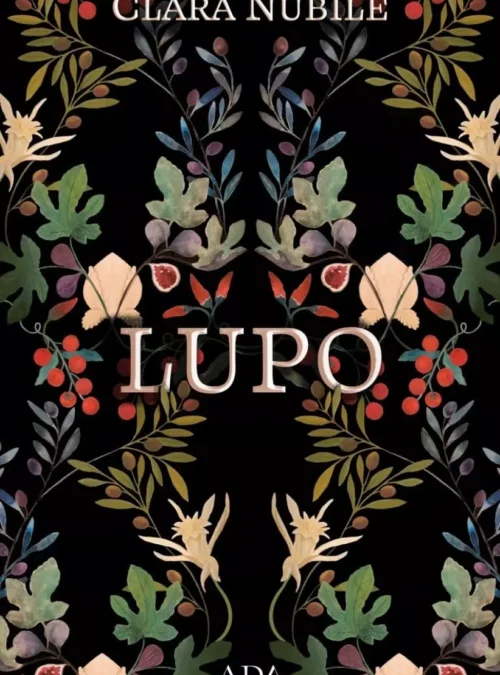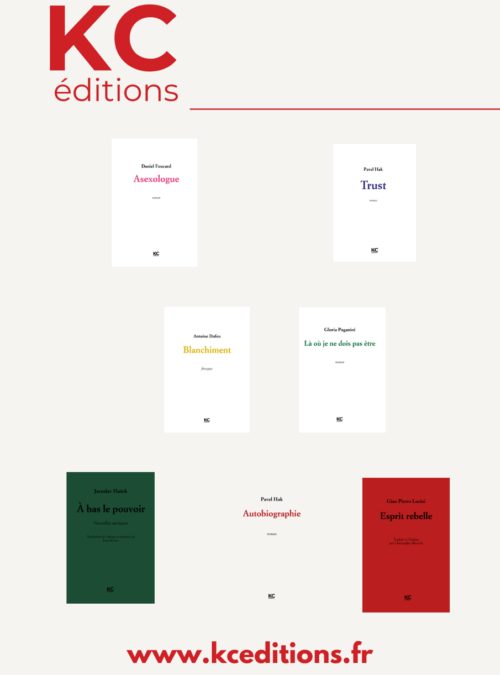Interview with Andrea Cati, editorial director of Interno Poesia
Author: Laura Pugno

newitalianbooks‘ series of interviews with the heads of Italian publishing houses continues with Interno Poesia, a publishing house exclusively devoted to writing in verse. The founder and editorial director, Andrea Cati, answers the question:
How would you describe the identity of the Interno Poesia publishing house to readers of newitalianbooks abroad? What are its characteristics and strengths? Which ventures, literary or otherwise, have worked best in Italy and possibly in other countries, and why do you think that is?
Interno Poesia is a small, dynamic, independent, plural and inclusive publishing house with a liberal spirit, eager to welcome and disseminate the different forms of contemporary and past poetry. This publishing project was born on the web in 2014, on the WordPress platform, during the transition from the use and consumption of literary blogs to the microblogging of social media; a project born of a simple and, in some respects, obsessive idea: to publish a poem every day using a formula that is still in force, namely the publication on a blog of a poetic text accompanied by a black and white photo of the poet. A bibliographical note, a text – unpublished or already published – of Italian or foreign poetry, contemporary or classical, without the addition of critical notes, biographies, interviews or other paratexts that compromise the experience of the pure reading of the published poems. From the outset, the project was deliberately eclectic and multifaceted, without adhering to any particular trend, madly in love with poetry and its most disparate forms: from the new avant-garde of experimental poetry to the different forms of lyric poetry, from visual poetry to that born of and promoted via social networks.
The specific nature of the blog, which is to welcome Italian and international poets from all over the world, has also been taken up by the publishing house: today, the Interno Poesia (IP) brand, created in 2016, brings together contemporary Italian voices and poets from all continents.
Thanks to constant editorial planning and social networks where Interno Poesia has achieved a level of success unmatched by other poetry channels in Italy, the editorial project has taken on an international dimension and is followed by an audience from different countries around the world. New initiatives are emerging thanks to collaboration with organisations, publishing houses, agencies and ministries of European states, North and South America, and even the Middle and Far East.
That being said, it is difficult to write without naming all the ‘winning’ examples, those that have worked best, in Italy and abroad. Let’s start with the foreign examples. Among all the names, that of Giulia Martini, invited to Argentina with her Coppie minime, and translated into several languages. Her presence at international festivals and events has further strengthened the link between Interno Poesia and the foreign publishing market, demonstrating that contemporary Italian poetry can have a significant impact beyond national borders.
In Italy, two names stand out among the most successful publications: Beatrice Zerbini (with In comode rate) and Andrew Faber (with Ti passo a perdere). Both, with different methods and styles, have won over the public and achieved figures and reprints that are almost always unhoped for in the small world of poetry. Beatrice Zerbini, with her intimate and lyrical style, has struck a chord with many readers, establishing herself as one of the most sensitive and recognisable voices in new Italian poetry. Andrew Faber, with his more direct and communicative approach, has succeeded in bringing poetry closer to an audience that often perceived it as distant or elitist, making it accessible through a language that has won over thousands of readers.
In addition to these names, the Interno Poesia catalogue includes a series of authors who have carved out a place for themselves, not only in terms of sales, but also in terms of critical acclaim and by winning some of the major literary prizes. The ‘Interno Novecento’ and ‘Interno Classici’ collections, on the other hand, aim to rediscover the great names of Italian and international poetry, including Beppe Salvia, Fernanda Romagnoli, Raffaele Carrieri and Margherita Guidacci, as well as the more famous Antonia Pozzi, Emily Dickinson and Emily Brontë.
Rather than success, I prefer to talk about ‘recognition’: it is difficult to talk about success for a project that is and remains small, faces all the problems of contemporary publishing, and in particular poetry, whose readership is very small compared to fiction. The pursuit of a fundamental objective is at the root of this ‘recognition’: to bring poetry into everyday life, to make it accessible without compromising its quality, to create a constant dialogue between the new generations and the masters of the past, offering the best of the different currents, styles and languages (sometimes irreconcilable) of poetry. Interno Poesia is not just a publishing imprint, but a cultural project that aims to redefine the way poetry is perceived and experienced in the contemporary landscape. Through constant promotion, the organisation of live events, collaborations with independent bookshops, distribution by Messaggerie, the promotion of EmmePromo, and participation in the main literary festivals and trade fairs, Interno Poesia aims to demonstrate that poetry can still be a living, vibrant art form, capable of engaging with an increasingly wide audience.










